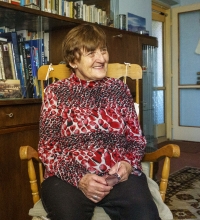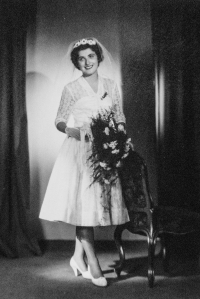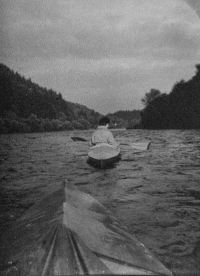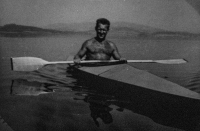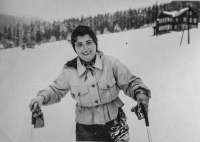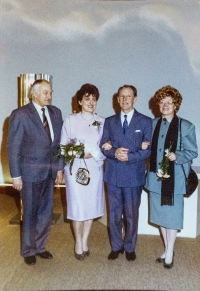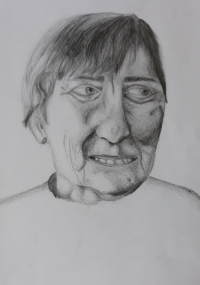Czechoslovakia was a prison, albeit with beautiful nature, but still a prison

Stáhnout obrázek
Hana Pangrácová, née Pospíšilová, was born on February 16, 1938 in Prague as the first child of the Pospíšil family, and her brother was born five years later. Father Bohumil was a master carpenter and ran his own carpentry workshop, mother Vlasta worked as a maid and later a housekeeper on Letná, where the family moved from Strossmayer Square. Hana remembers the bombing of Prague by the Allies in the spring of 1945. As a seven-year-old, she experienced the Prague uprising and liberation by the Soviet army, when Nazi flags were torn down in the city and German women had to clear rubble and barricades. After the war, she started school, and even though she got all A‘s, she didn‘t get into a technical school. The communists confiscated her father‘s carpentry workshop, so as the daughter of a tradesman, she was not allowed to study, just like her brother. In 1953, she began training as a research laboratory technician and worked first in the pharmacy research institute, and from 1960 in the radioisotope research institute. She finally got her high school diploma in the evening industrial school. She got married in 1959, and she and her husband raised two sons. In August 1968, she and her children were on recreation in Rokytnica nad Jizerou when they received news of the occupation of the country by Warsaw Pact troops. They extended their stay and waited for the situation in Prague to calm down. Even after returning, however, they found Soviet patrols in the streets with small cannons aimed at their windows. She recalls the difficulty of finding a job after background checks in the early 1970s, when she was returning from maternity leave. In November 1989, the whole family happily participated in the demonstrations against the communist regime, the son was right on Národní třída, she and her husband went straight from work to Wenceslas Square. She soon took advantage of the open borders and attempted to travel and get to know countries that she had not been allowed to visit for over forty years. In 2022, she lived in Prague.
